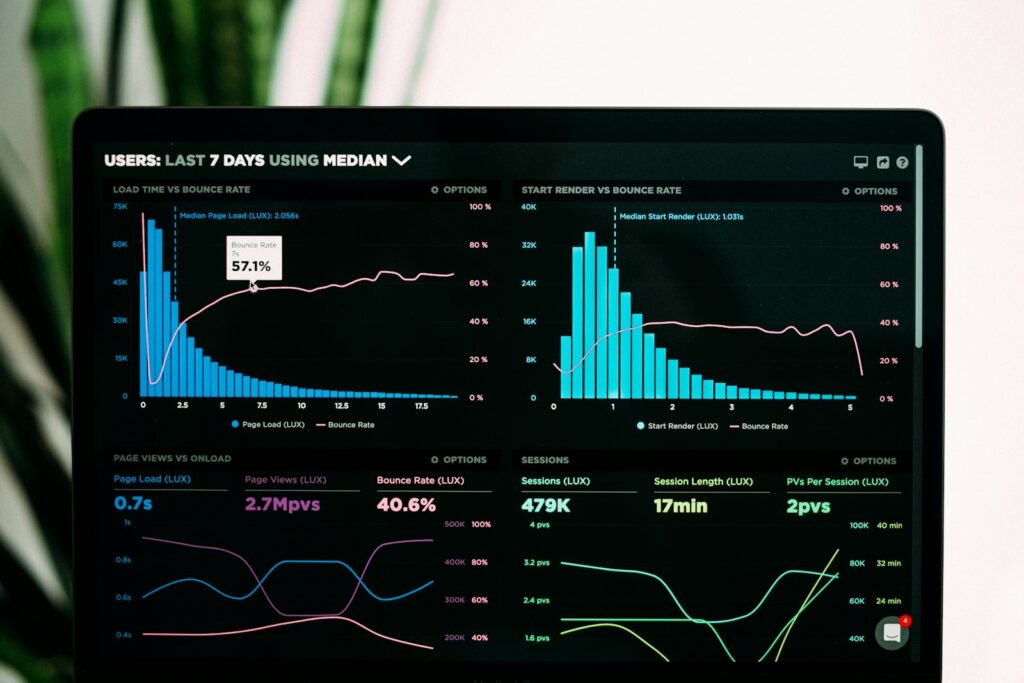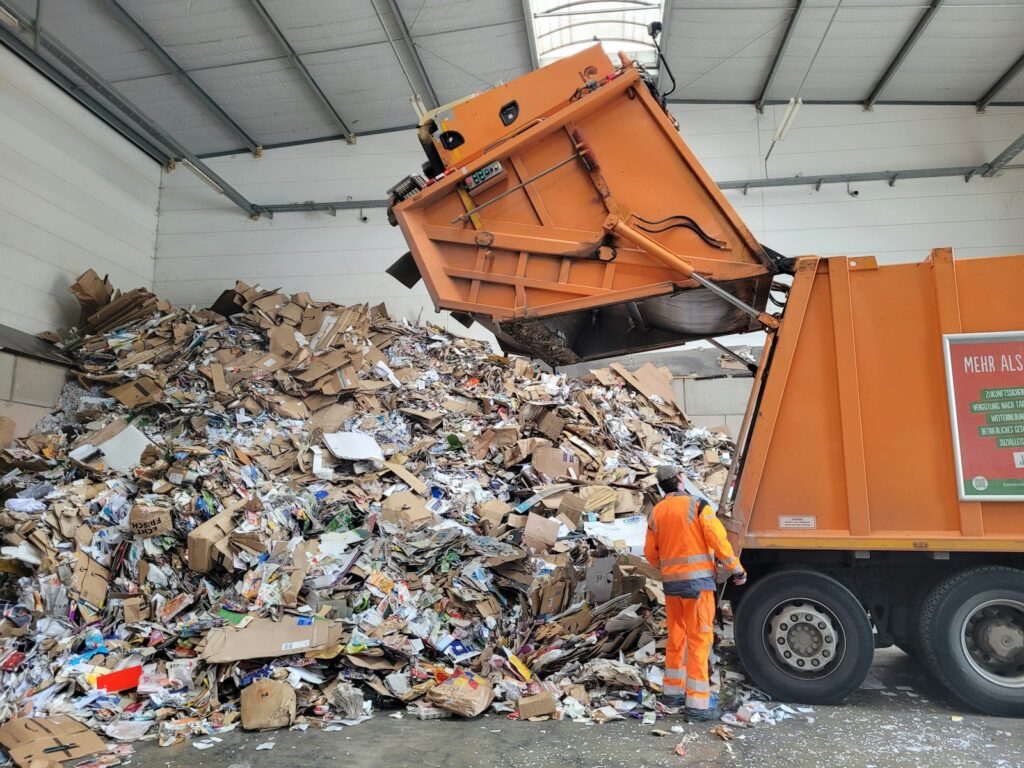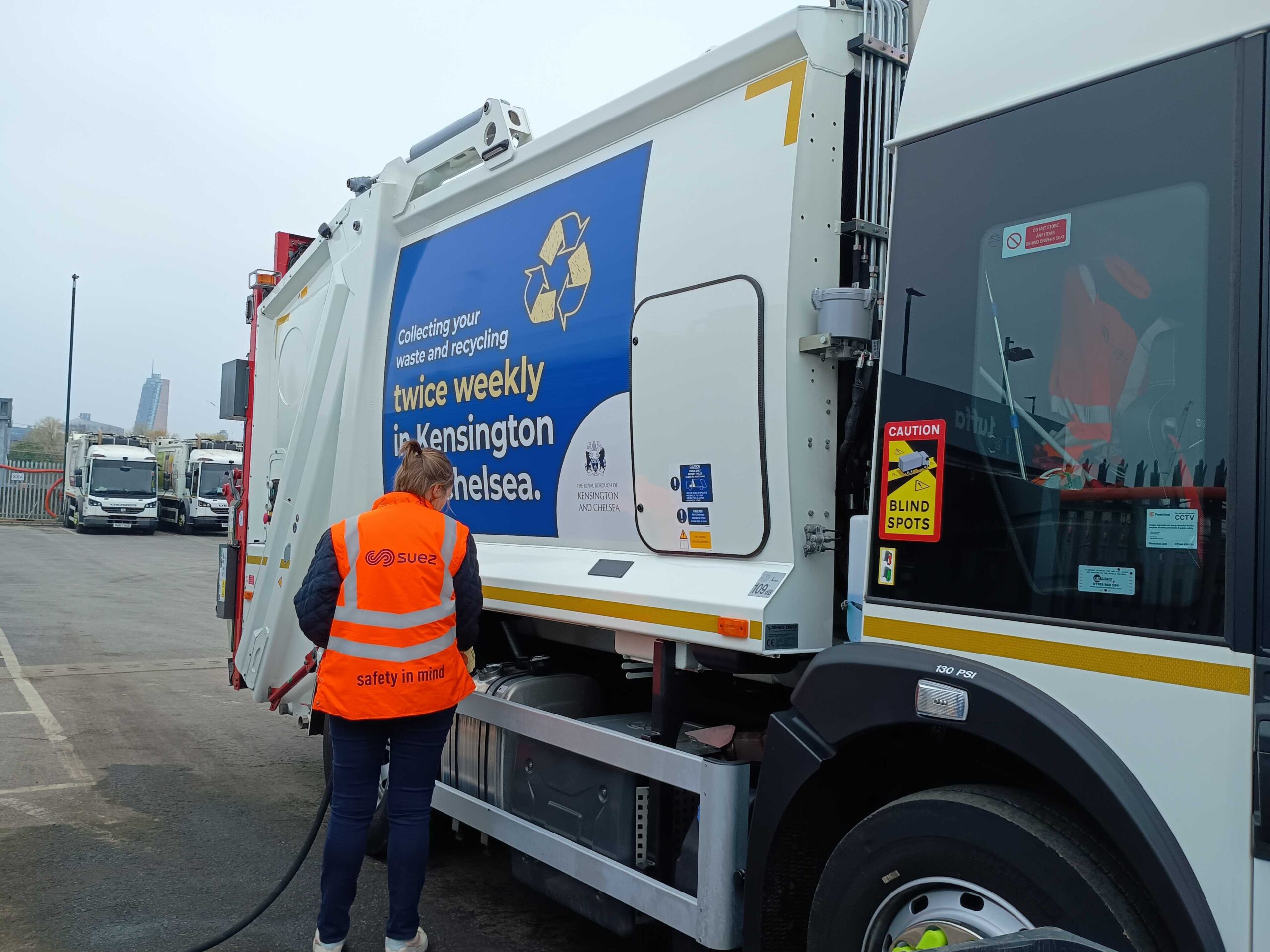The London borough will save 300 tonnes of carbon emissions each year through the switch to biofuel.
In total, 44 waste and refuse collection lorries operated on behalf of the council have now switched engines off to diesel in order to reduce operational impacts.
The trial is expected to cut carbon emissions by 90% over the course of 12 months. A more climate friendly fuel, hydrotreated vegetable oil [HVO] is made from cooking oils and animal fats, and doe not require any conversion technology to be used in a standard combustion engine. This significantly reduces the cost of transition for authorities and service providers.
‘Achieving net zero is increasingly difficult for councils who are rightly prioritising keeping essential services running for residents. By trialling hydrotreated vegetable oil in place of a polluting fuel like diesel, we are innovating without compromising service,’ said Cllr Johnny Thalassites, lead member for net zero at Kensington & Chelsea Council.
‘Residents are still getting their bins collected twice a week, and it’s not costing more either – win win,’ he continued. ‘A lot of HVO is reclaimed from catering. So next time you’re enjoying Friday night fish and chips, the oil used to fry your meal may well end up fuelling our waste collection vehicles.’
It is hoped the move to HVO will cut the council’s carbon emissions by 10%, with individual vehicles emitting 80% less at source. Kensington & Chelsea, which pledged significant environmental and climate-related steps in 2022, has also made progress on its administrative buildings and other real estate, including the installation of heat pumps at six schools in the borough and one leisure centre.
Image: Kensington & Chelsea Council


















